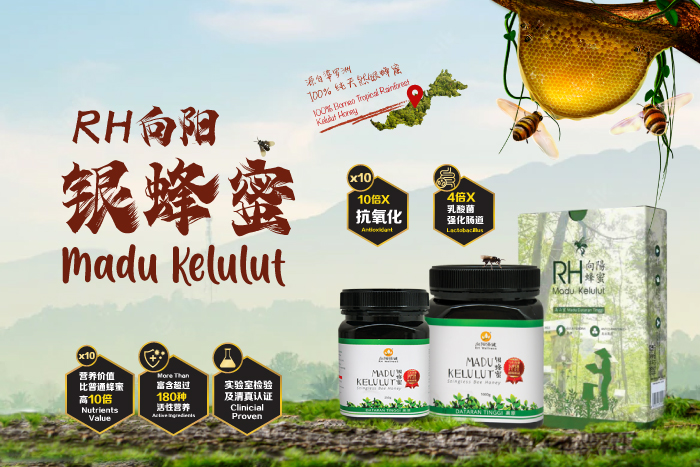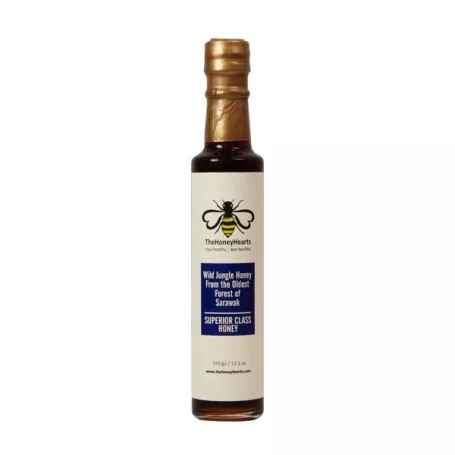What Should Not Be Eaten with Honey | BaiZiGui

Common Uses of Honey and Its Value in Daily Diet
Honey, as a natural sweetener and nutritional food, has a history that spans thousands of years. In ancient civilizations, honey was not only used as a flavoring agent for food but also as a natural remedy for a variety of ailments. In modern times, honey's uses have become even more widespread, finding a place in almost every household kitchen. Honey can be consumed directly, used in beverages, baking, seasoning, and medicinal recipes.
The sweetness and aroma of honey make it an excellent and healthy substitute for sugar. Moreover, honey holds a significant place in skincare and beauty routines. Many people use honey to create face masks or hair conditioners to nourish the skin and hair.
Basic Nutrition and Health Benefits of Honey
Honey is rich in various nutrients, including:
Carbohydrates
Mainly glucose and fructose, providing a quick source of energy.
Vitamins and Minerals
Such as B vitamins, vitamin C, calcium, iron, magnesium, potassium, phosphorus, and zinc.
Antioxidants
Such as flavonoids and phenolic acids, which help with antioxidation and anti-inflammation.
Enzymes
Such as amylase and glucose oxidase, which aid in digestion and metabolism.
The health benefits of honey include:
Antibacterial and Anti-inflammatory
Honey has natural antibacterial properties that help treat wounds and infections.
Digestive Aid
Honey can regulate gastrointestinal function, helping with digestion and detoxification.
Immune System Boost
The antioxidants in honey can enhance the immune system, preventing diseases.
Cough and Throat Relief
Honey acts as a natural cough suppressant, soothing throat discomfort.
Foods That Should Not Be Eaten with Honey
Despite its many health benefits, honey may cause adverse reactions or reduce its nutritional value when consumed with certain foods. Here are some foods that should not be consumed with honey:
Onions and Garlic
Consuming honey with onions or garlic may cause digestive discomfort, leading to stomach pain and discomfort.
Tofu
Eating honey with tofu may cause diarrhea and digestive issues.
Crucian Carp
Consuming honey with crucian carp may lead to toxic reactions, affecting health.
Leeks
Eating honey with leeks may cause gastrointestinal discomfort and diarrhea.
Why These Combinations Should Be Avoided
Consuming honey with these foods may lead to the following problems:
Onions and Garlic
The enzymes in honey react with the sulfur compounds in onions and garlic, potentially producing substances that irritate the digestive system, causing indigestion and stomach pain.
Tofu
The minerals in tofu combine with components in honey, forming substances that are difficult to digest, increasing the burden on the digestive system.
Crucian Carp
Certain components in honey react with the proteins in fish, potentially generating toxic substances, posing a threat to health.
Leeks
The sulfur compounds in leeks combine with components in honey, possibly irritating the gastrointestinal tract, leading to diarrhea and discomfort.
Safe Consumption Recommendations for Honey
To safely and effectively enjoy the health benefits of honey, here are some recommendations:
Consume in Moderation
Although honey is beneficial, excessive consumption may lead to elevated blood sugar levels and weight gain. It is generally recommended not to consume more than one to two tablespoons of honey per day.
Avoid High-Temperature Cooking
High temperatures can destroy the nutrients and enzymes in honey, so it is not advisable to cook honey at high temperatures. It is best to add honey after food has cooled to a suitable temperature.
Be Mindful of Pairings
Be aware of foods that do not pair well with honey to avoid adverse reactions.
Choose High-Quality Products
Choose high-quality honey products, such as those offered by BaiZiGui , to ensure nutrition and safety.

BaiZiGui's Honey Selection Guide
As the general agent for RH Stingless Bee Honey, BaiZiGui is committed to providing the highest quality honey products. RH Stingless Bee Honey is widely popular for its pure, natural, additive-free, fragrant, and nutritious characteristics.
RH Stingless Bee Honey
This honey is harvested from high-quality nectar sources and undergoes strict quality control to ensure every bottle is pure and natural. Its rich nutritional content and pure taste make it a consumer favorite.
Various Choices
BaiZiGui offers a variety of honey products, including original honey, floral honey, and specialty honey, to meet different consumer needs.
Quality Assurance
All honey products sold by BaiZiGui undergo strict testing to ensure they are additive-free and uncontaminated, maintaining the natural purity of honey.
Frequently Asked Questions
Can Honey Be Paired with Milk?
Honey can be paired with milk, a common combination. The enzymes in honey and the nutrients in milk can complement each other, promoting sleep and improving digestion. However, it is essential not to mix honey with milk at high temperatures to avoid destroying honey's nutrients.
What Are the Precautions for Using Honey in Cooking?
When using honey in cooking, avoid prolonged high-temperature heating to prevent the destruction of its nutrients. It is recommended to add honey after the food has cooled to an appropriate temperature to maintain its nutritional value. Additionally, avoid cooking it with incompatible foods to prevent adverse reactions.
Can Honey Be Used in Baby Food?
Honey is not recommended for infants under one year old because it may contain botulinum spores, and infants' immune systems are not fully developed to resist this bacteria. For safety, it is advisable to feed infants specially designed baby food.
Detailed Analysis of Nutritional Content
Honey's nutritional profile is quite impressive, offering a wide range of vitamins, minerals, and other beneficial compounds:
Carbohydrates
The primary carbohydrates in honey are fructose and glucose, which are simple sugars that provide an instant energy boost. Unlike processed sugars, honey’s carbohydrates are accompanied by small amounts of other beneficial nutrients.
Vitamins
Honey contains several B vitamins, including B6, thiamin, niacin, riboflavin, and pantothenic acid, which are essential for various metabolic processes in the body.
Minerals
Honey is a source of important minerals like calcium, iron, magnesium, potassium, zinc, and phosphorus, which play various roles in bodily functions such as bone health, oxygen transport, and enzyme function.
Antioxidants
Honey contains antioxidants like flavonoids and phenolic acids. These compounds help neutralize harmful free radicals in the body, reducing oxidative stress and potentially lowering the risk of chronic diseases.
Amino Acids
Although in small amounts, honey contains amino acids, the building blocks of proteins, which are essential for tissue repair and growth.
The Role of Enzymes in Honey
Enzymes in honey are crucial for its health benefits and preservation qualities:
Diastase (Amylase)
Helps in the breakdown of starches into simpler sugars.
Invertase
Converts sucrose into glucose and fructose.
Glucose Oxidase
Produces hydrogen peroxide, contributing to honey’s antibacterial properties.
Health Benefits Beyond Nutrition
Honey’s benefits extend beyond basic nutrition:
Wound Healing
Honey’s antibacterial properties make it effective in wound healing. It can create a moist healing environment and its viscous nature helps form a protective barrier against infection.
Sore Throat Relief
Honey’s soothing properties can help alleviate sore throat symptoms and reduce coughing, making it a popular home remedy during cold and flu season.
Skin Health
Honey is often used in skincare for its moisturizing and antibacterial properties. It can help treat acne, reduce inflammation, and hydrate the skin.
Precautions and Potential Risks
While honey is generally safe for most people, there are certain precautions and potential risks to be aware of:
Infants
As mentioned, honey should not be given to infants under one year old due to the risk of botulism.
Allergic Reactions
Some individuals may be allergic to pollen found in honey, which can cause reactions ranging from mild to severe.
Blood Sugar Levels
Although honey has a lower glycemic index than sugar, it can still impact blood sugar levels. People with diabetes should consume honey with caution.
Conclusion
Honey is a nutrient-rich, health-beneficial natural food that should be consumed with consideration of potential food interactions. Understanding which foods to avoid combining with honey can help prevent adverse reactions and maximize its health benefits. By choosing high-quality honey products, such as RH Stingless Bee Honey offered by BaiZiGui, consumers can ensure they are getting the best in nutrition and safety. Following moderation and proper consumption methods allows you to fully enjoy honey's benefits. Furthermore, understanding common questions and precautions helps you better appreciate the health and deliciousness that honey brings.

 Bahasa melayu
Bahasa melayu 中文
中文



























